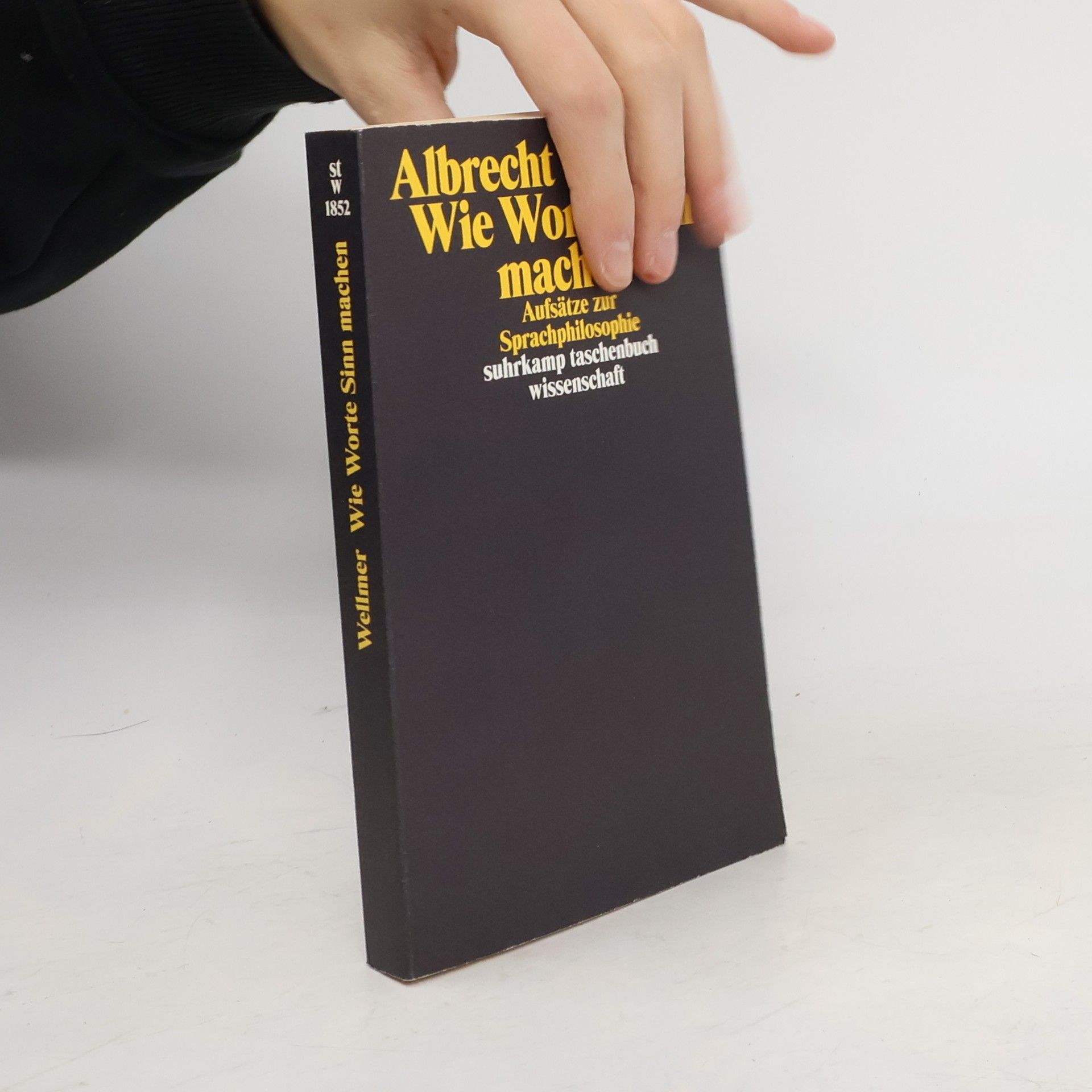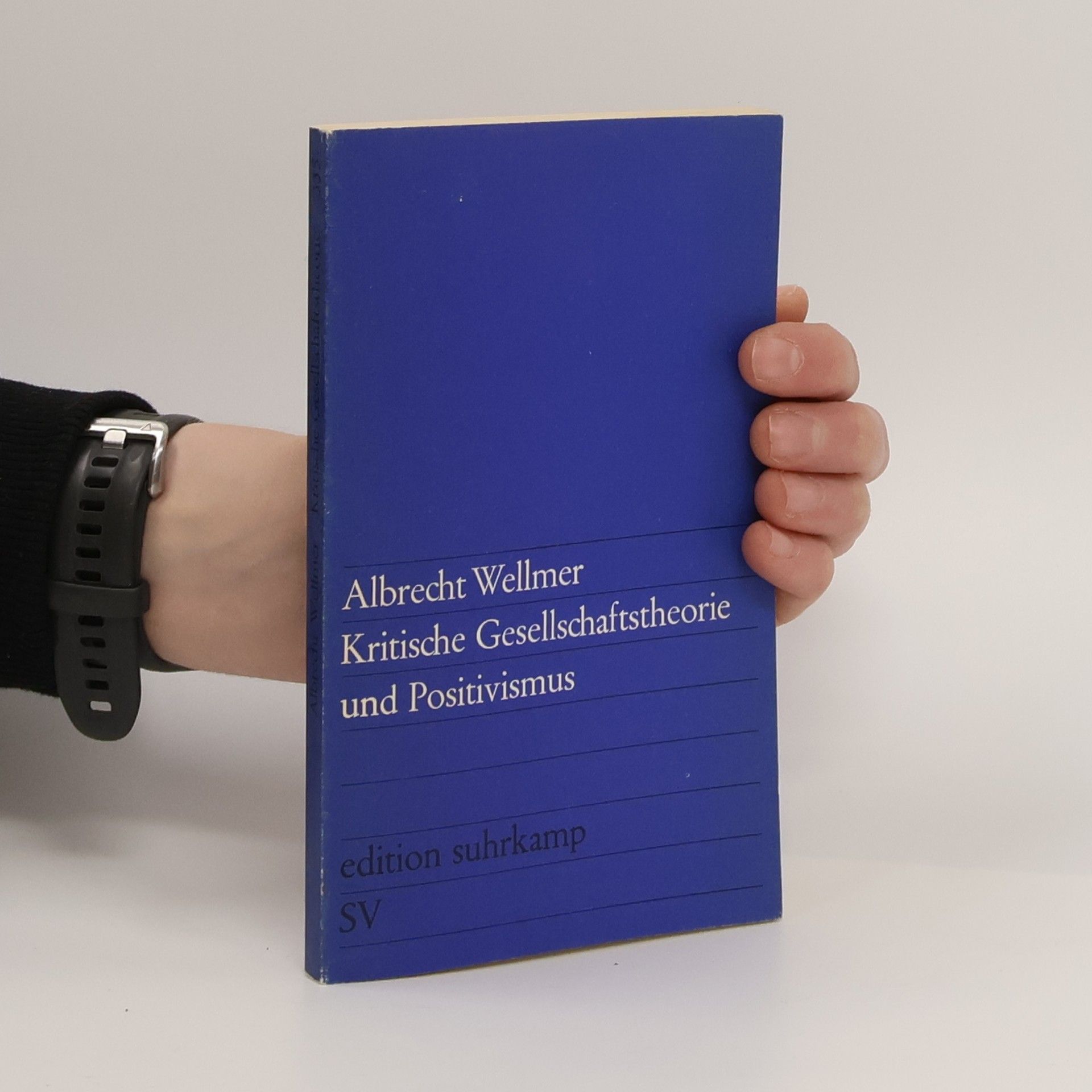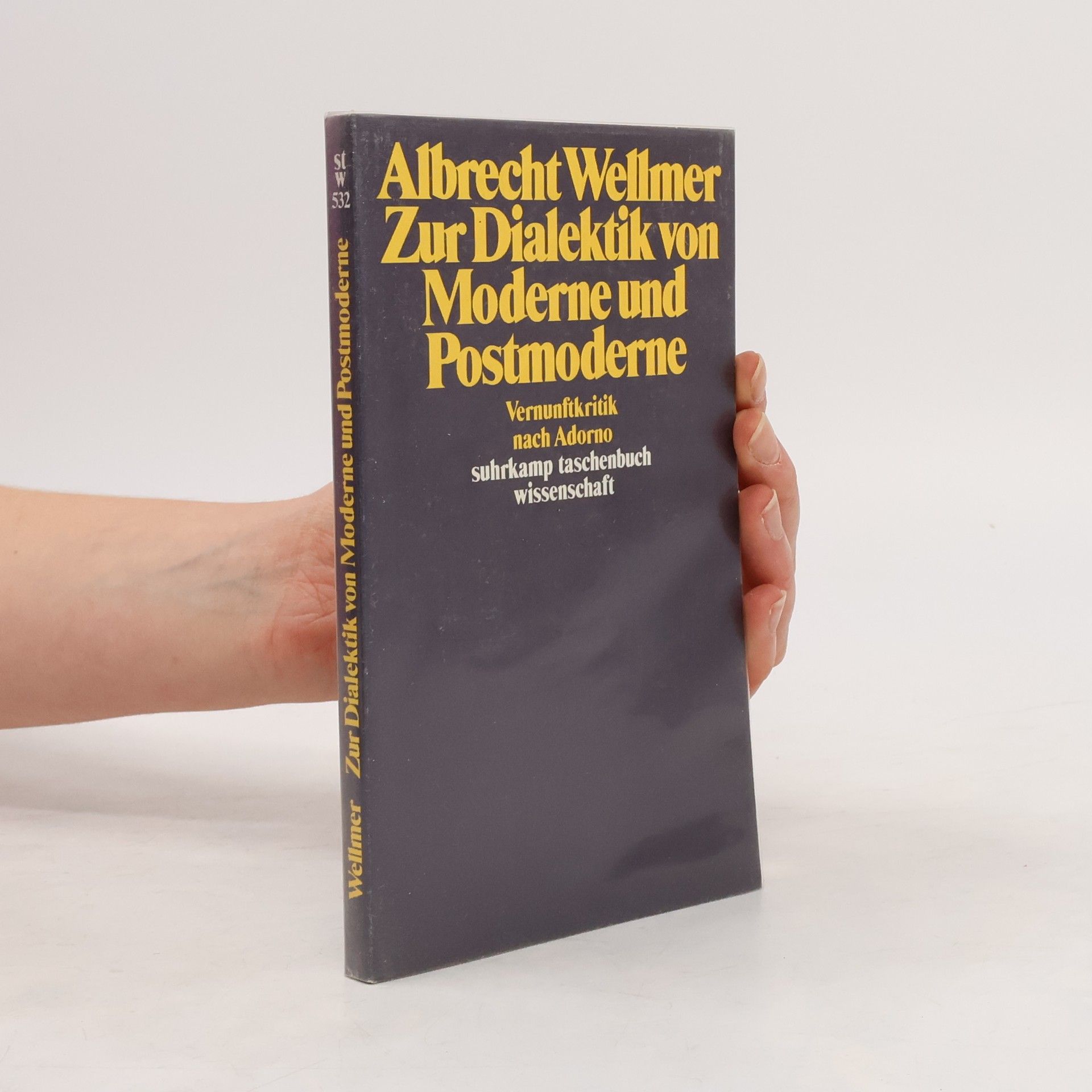Die Aufsätze des jüngst mit dem Adorno-Preis ausgezeichneten Philosophen Albrecht Wellmer folgen den Spuren einer sprachphilosophischen Reflexionsbewegung, die im 20. Jahrhundert das Verständnis zentraler Begriffe und Themen der philosophischen Tradition grundlegend verändert hat. Es geht nicht nur um die Einsicht, daß das Denken, Erkennen und Handeln, die Vernunft und die Subjektivität Sprache voraussetzen; vielmehr geht es auch um ein neues Verständnis der Sprache selbst. Es sind vor allem zwei Denkbewegungen, an die Wellmer anknüpft: die pragmatische Wende der Sprachphilosophie und die Kritik an einem objektivistischen Mißverständnis des sprachlichen Sinns. Wellmer entwirft die Umrisse einer pragmatischen und hermeneutischen Sprachphilosophie, in der es auch um Bedingungen eines angemessenen Selbstverständnisses moderner liberaler Kulturen geht.
Albrecht Wellmer Book order (chronological)






Der Band geht auf zwei Vorlesungen zurück, die Albrecht Wellmer an der FU Berlin gehalten hat. Ausgangspunkt ist eine kritische Betrachtung der Theorien Wittgensteins und Davidsons aus sprachpragmatischer Perspektive, der ein Exkurs zum Verhältnis von Wahrheit und Rechtfertigung folgt. Schließlich erweitert er die sprachanalytischen Fragestellungen um eine hermeneutische Sicht auf unsere Sprachpraxis. Mit Heidegger, Gadamer und Derrida geht er dabei einerseits über die Grenzen hinaus, die durch die sprachanalytische Vorgehensweise gezogen sind, konfrontiert andererseits die Texte der »kontinentalen« Philosophie mit den zuvor aus den sprachanalytischen Ansätzen gewonnenen überlegungen. Beide Traditionslinien werden somit im Sinne einer kritisch-hermeneutischen Sprachphilosophie zusammengeführt.
Endgames
- 360 pages
- 13 hours of reading
This collection of thirteen essays by a prominent figure in contemporary German philosophy explores the concept of postmetaphysical modernity. The preface connects the title, Endgames, to the central theme: historical utopias from the Marxist tradition and Kantian programs of ultimate justification represent endgames within metaphysics. Their deconstruction serves as a critique of these metaphysical constructs, addressing the ultimate telos of history, knowledge, and human life. The title also critiques postmodernist approaches that seek to dismiss modernity; Wellmer defends the essential moral and political aspects of modernity that must be preserved in a postmetaphysical context, distinguishing his work. In the first section, "Negative and Communicative Freedom," he examines the relationship between liberal rights and modern democracy. Part II, "Postmetaphysical Perspectives," develops insights on aesthetics, metaphysics, truth, and hermeneutics, engaging with thinkers like Adorno, Rorty, Habermas, and Gadamer. The final section, "Images of the Times," features essays on Wittgenstein, the Frankfurt School, Hans Jonas, and architecture. The book concludes with a critical essay on Hannah Arendt, highlighting her political philosophy's significance to Wellmer's thought.
The Persistence of Modernity presents four essays, drawn from works by one of Germany's foremost philosophers, that go to the heart of a number of contemporary Adorno's aesthetics, the nature of a postmodern ethics, and the persistence of modernity in the so-called postmodern age.Albrecht Wellmer defends the general thesis that modernity contains its own critique and that what has been called postmodernism is in fact a further articulation of that critique. More specifically, his essays offer a reinterpretation of Adorno's aesthetics in the framework of a postutopian philosophy of communicative reason, an analysis of the postmodern critique of instrumental reason and its subject that becomes an argument for democratic pluralism and universalism, a discussion of the dialectics of modernism and postmodernism in the context of architecture and industrial design, and a dialogical ethics that is inspired by and yet takes issue with Habermas's discourse ethics.
Zur Dialektik von Moderne und Postmoderne
Vernunftkritik nach Adorno
Gegenüber den anti-rationalen Zweideutigkeiten des sogenannten Postmodernismus verteidigt Albrecht Wellmer die Perspektive einer radikalisierten Aufklärung. In kritischer Anknüpfung an Adorno setzt er diese Perspektive zu zentralen Impulsen der modernen Kunst in Beziehung.
Solange die kritische Theorie sich noch als das Selbstbewußtsein eines historischen Prozesses und eines revolutionären Kampfes zugleich begriff, mußte der innerakademische Vorwurf der »Unwissenschaftlichkeit« sie nicht irritierten. Seitdem sie aber nicht nur im Kontext der etablierten Wissenschaften, sondern auch in dem der Politik in die Isolierung geraten ist, und seitdem die postulierte Einheit von Theorie und Praxis zumindest im klassischen Bezugsfeld der kritischen Theorie, den hochindustrialisierten Staaten des Ostens und Westens, sich als Illusion erwiesen hat, kann sie nur noch im Zuge einer durchgreifenden selbstkritischen Revision die verlorengegangene Einheit wiederherzustellen versuchen. Hieraus ergibt sich die von Wellmer untersuchte Frage, wieweit die kritische Theorie ihren Anspruch aufrechterhalten kann, als Theorie der Gesellschaft zugleich Kritik der Gesellschaft und Selbstbewußtsein kritischer Praxis zu sein.